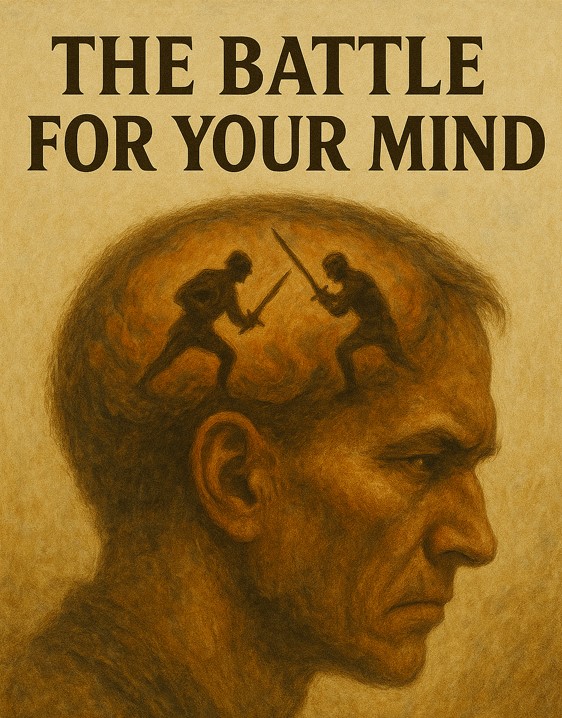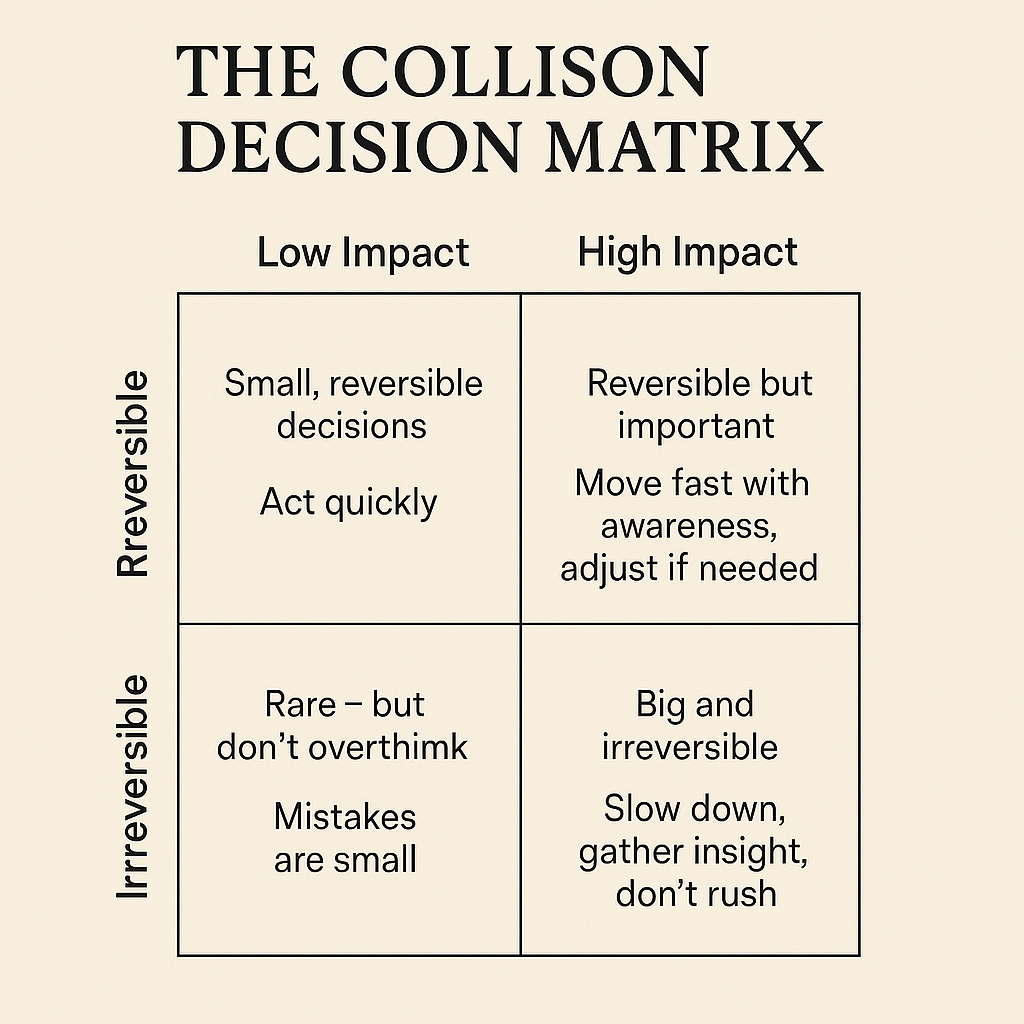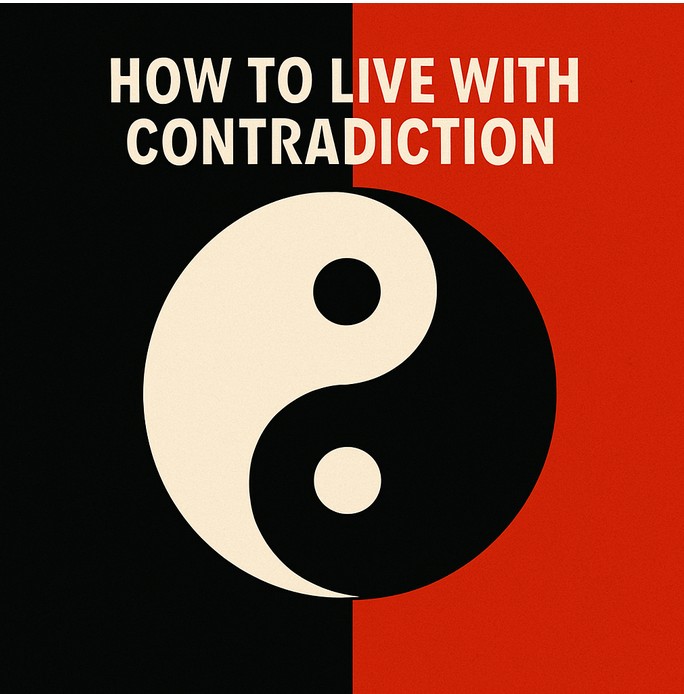The Red Queen Effect
Running Faster and Faster Only to Stay in the Same Place
4 Strategies To Counter The Red Queen Effect
The Red Queen Effect is a reference to the Lewis Carroll novel "Through the Looking-Glass" where the key character Alice is running with the Red Queen who keeps encouraging Alice to run faster. But after a while Alice realises that despite all their running they aren't getting anywhere...
The Red Queen Effect Predicts That All Advantages Are Temporary
The message of The Red Queen Effect is you can’t be complacent or you'll fall behind. To survive you have to run very fast and hard, and you need to co-evolve with the people and the systems you interact with.
From an evolutionary perspective, not all animals evolve at the same rate, some are more “responsive to change” [Darwin] than others.
Species that are more responsive to change can gain a relative advantage over the ones they compete with and increase the odds of survival.
In the immediate term these small advantages won't mean much over the long term the advantages can compound and lead to a greater chance of survival.
In human terms those of us who are more responsive to continuous change increase our chances of survival economically and it may even enable us to create a sustainable competitive advantage.
Over the long term there are very few truly sustainable competitive advantages, your competition will evolve, catch-up and overtake you.
But if the gains you make, when you have the advantage, are large enough then it may not matter.
Alternatively, the smart strategy is to identify and utilize the resources, and develop the skills, that will enable you to always be more responsive to change.
The challenge is to find ways of doing things that enable you to run smarter rather than faster AND to develop the capabilities that will enable you to keep doing that.
Ways Of Minimising The Red Queen Effect
The first and most obvious step you take to minimise the red queen effects, and to run smarter rather than faster, is by developing and improving your thinking skills.
Here are four strategies you can employ to give yourself an advantage:
1. Find a niche
"The less-recognized fact is that we can actually make more markets, and we can do so more easily now than ever.
While the Industrial Revolution unleashed wealth creation, the internet has unleashed market creation in the form of the Long Tail.
By eliminating geography, the internet has both created more markets and also made it significantly easier to redefine those markets’ boundaries.
There are more and more markets than ever because of the Long Tail. And because we invented wealth creation, many of those markets are growing or fragmenting off into smaller markets that are growing.
AirBnB, now a $20 billion dollar company, was founded off the back of Craigslist’s classifieds section. There will, I suspect, be hundreds of companies founded off of Craigslist before it’s all said and done."
2. Focus On The Few To Find The Many
It's now the 80/20
curve/Pareto Principle that defines our lives. To reference Taylor Pearson again:
"It’s now
the 80/20 curve that defines our lives. The statistical term 'fat
tails' refers to probability distributions with relatively high
probability of extreme outcomes.
80/20 is striking to most people because it indicates that the natural order of most systems is not an equal distribution, but an unequal distribution: only 20% of customers account for 80% of revenue."
So focus on the 20% of your contacts, clients or income sources opportunities that give you 80% of your income, develop these relationships.
3. Benefit From The Fat Tail Fractal Factor
When you are focusing on the “fat tail” - the 20% who deliver 80% of the results - understand that the fat tail, the 80/20 is fractal, meaning it can be applied to itself.
So for example, if 20% of people own 80% of the land, we can then take the 80/20 of that new 20%. In that case, 4% of people would own 64% of the land.
If we then took the 80/20 of that, then 0.8% of people own 51.2% of the land.
The Top 1% Of Fat Tails Account For 50% Of The Results.
So when focusing on the top 20%, remember that somewhere in amongst that group is a subset - which may be just one or two individuals - who will deliver over 50% of your results.
4. Exercise Influence Without Authority
There are many situations where you are not in charge, you do not have formal authority and yet you can still build relationships and alliances with useful, influential and powerful people.
These people are as likely to be found in the informal networks of an organisation, as in the formal management structure.
You may not realise it but you can exercise influence - sometimes considerable influence - by the practise of "the law of reciprocity".
Sourced from my change management website here is a free download of a 6 Step Model to Exercising Influence Without Authority.
Return from "The Red Queen Effect" to: Mental Models
LATEST ARTICLES
The Inner Weight of Shame - Sustained By Attentional Fixation
 A Mind That Is Continuously Engaged In Self-Surveillance. Shame is one of the heaviest inner burdens a human being can carry. It does not announce itself loudly or demand attention through drama. Inst…
A Mind That Is Continuously Engaged In Self-Surveillance. Shame is one of the heaviest inner burdens a human being can carry. It does not announce itself loudly or demand attention through drama. Inst…Does Prayer Work? The Psychology of Prayer, Meditation and Outcomes
 Reality Is A Complex System Of Countless Interactions - Including Yours. So does prayer work? The problem is that the question itself is usually framed in a way that guarantees confusion. We tend to a…
Reality Is A Complex System Of Countless Interactions - Including Yours. So does prayer work? The problem is that the question itself is usually framed in a way that guarantees confusion. We tend to a…Living in Survival Mode Without Surrendering Mental Authority
Living in Survival Mode Without Surrendering Mental Authority
 Clear Thinking When You’re Just Trying to Stay Afloat. Many people today are overwhelmed because they are living in survival mode - not temporarily, but as a persistent condition of life. For many, th…
Clear Thinking When You’re Just Trying to Stay Afloat. Many people today are overwhelmed because they are living in survival mode - not temporarily, but as a persistent condition of life. For many, th…Manifestation Without Magic: A Practical Model
 Manifestation without magic is not a softer or more intellectual version of popular manifestation culture. It is a different model altogether. Popular manifestation teachings tend to frame reality as…
Manifestation without magic is not a softer or more intellectual version of popular manifestation culture. It is a different model altogether. Popular manifestation teachings tend to frame reality as…Staying Committed When You Can't See Progress - The Psychology of Grit
 Uncertainty Is Not The Absence Of Progress, Only The Absence Of Reassurance. One of the most destabilising experiences in modern life is not failure, but uncertainty and staying committed when you can…
Uncertainty Is Not The Absence Of Progress, Only The Absence Of Reassurance. One of the most destabilising experiences in modern life is not failure, but uncertainty and staying committed when you can…The Battle For Your Mind - How To Win Inner Freedom In A Digital Age Of Distraction
 From External Events to Inner Events. We often think of “events” as things that happen out there: the traffic jam, the rude comment, the delayed email reply. But what truly shapes our experience is wh…
From External Events to Inner Events. We often think of “events” as things that happen out there: the traffic jam, the rude comment, the delayed email reply. But what truly shapes our experience is wh…How to See Your Thoughts Without Becoming the Story
 A Practical Guide to Thought-Awareness. You can spend your life inside the stories of your mind without ever learning how to see your thoughts clearly and objectively. Most of the stuff we tell oursel…
A Practical Guide to Thought-Awareness. You can spend your life inside the stories of your mind without ever learning how to see your thoughts clearly and objectively. Most of the stuff we tell oursel…The Collison Decision Matrix - A Simple Framework for Better Choices
 The Collison Decision Matrix Is A Practical Everyday Thinking Tool. Most of us spend a surprising amount of time worrying about decisions. From small ones such as what to wear, what to eat, what to te…
The Collison Decision Matrix Is A Practical Everyday Thinking Tool. Most of us spend a surprising amount of time worrying about decisions. From small ones such as what to wear, what to eat, what to te…The Power Of Asking The Right Question
 The Power Of Asking The Right Question Lies In The Quest For Insight. To experience the power of asking the right question you must develop the practice of asking questions. The best way to improve th…
The Power Of Asking The Right Question Lies In The Quest For Insight. To experience the power of asking the right question you must develop the practice of asking questions. The best way to improve th…Site Pathways
 Here is a site pathway to help new readers of Zen-Tools navigate the material on this site. Each pathway is based around one of the many key themes covered on this site and contain a 150 word introduc…
Here is a site pathway to help new readers of Zen-Tools navigate the material on this site. Each pathway is based around one of the many key themes covered on this site and contain a 150 word introduc…How To Live With Contradiction - Beyond Thought Let Stillness Speak
 A major impact on so many peoples' lives is the situational contradiction of unfilled realistic expectations. So where does all this leave us? Well here we are, with mental equipment that is more lim…
A major impact on so many peoples' lives is the situational contradiction of unfilled realistic expectations. So where does all this leave us? Well here we are, with mental equipment that is more lim…
